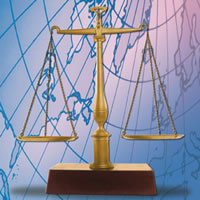 Pine Forge Estate Lawyers, Pennsylvania
Pine Forge Estate Lawyers, Pennsylvania
Sponsored Law Firm
-
 x
x

Click For More Info:
-
Levine Law, LLC
22 E Grant St New Castle, PA 16101» view mapEstate and Real Estate Law 3rd Generation Law Firm
Levine Law aims to create the most direct, simple, and common sense approach to achieve the client's desired end result.
800-711-7881
Sponsored Lawyers
1-5 of 5 matches
Estate, Business, Wills & Probate
Thomas P. Heeney, Jr. was born in Philadelphia, Pennsylvania (1967) and was raised in Doylestown, Buck County, PA where he attended and graduated from Central Bucks High School East (1986). While in high school, Mr. Heeney was a standout cross country and track and field runner. Mr. Heeney is also an Eagle Scout, a recipient of the Union League of Philadelphia Good Citizenship Award and a recipient of the Good Citizenship Award from the Bucks County Chamber of Commerce. Educationally, Mr. Heeney attended Shippensburg University in Shippensburg, Pennsylvania where he earned both a Bachelor of Science Degree (1990) and a Master’s Degree (1991) in Public Administration. Thereafter, Mr. Heeney earned his Juris Doctorate from Cleveland-Marshall College of Law in Cleveland, Ohio (1995). Professionally, Thomas P. Heeney, Jr., Esquire is the founder and principal attorney of Heeney & Associates, P.C. (2001). Coining the phrase Get the LEGAL Edge, Attorney Heeney concentrates in the areas of Business Law and Transactions, Tax Law, Real Estate, Zoning, Subdivisions and Land Use, Wills, Estates and Probate, Entertainment Law and Civil Litigation. Mr. Heeney represents several Doylestown area corporations, businesses and nationally recognized music and literary artists. He has also successfully litigated cases involving intellectual property rights in the computer, trademark and copyright areas, as well as those cases involving traditional causes of action such as breach of contract and negligence. Mr. Heeney is a member of the Bucks County Pennsylvania Bar Association, where he participates in the Orphans Court and Civil Litigation Services. Civically, Mr. Heeney currently serves on the Board of Directors and acts as Vice President of Building a Better Boyertown (BBB) based out of Boyertown, Pennsylvania, where he and his family currently reside.
(more)


 Brian Levine New Castle, PA
Brian Levine New Castle, PA Practice AreasExpertise
Practice AreasExpertise

